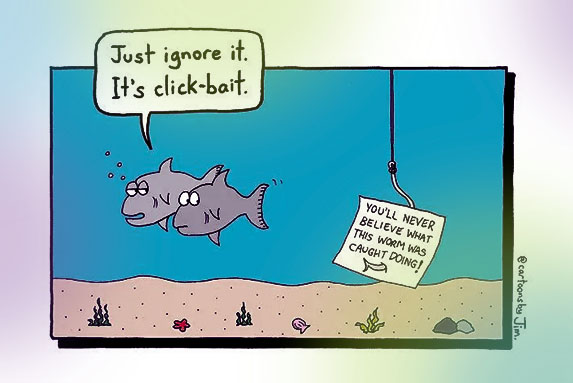
Click Bait Cartoon via cartoonsbyJim
Am I alone in being exhausted/annoyed by headlines these days?
I want to stick a needle in my eye.
- CRUZ PUNCHES WIFE IN THE FACE
No, he didn’t. I don’t like the guy, everyone knows this, yet the dude is awkward and went to hug his dad and accidentally… UGH - CURRY MAY NEVER PLAY BASKETBALL AGAIN
Seriously? I MAY become queen someday because I am a woman and, well, anything is possible right? C’mon. UGH. - INFLUENCE backed by SCIENCE
Humans are irrational and emotional. There is no science when it comes to influence. Your article has ideas that are not science at all. UGH
These types of headlines may get a person to click on the story and I guess that is the initial goal. Yet, we reduce our brand with people when we DUPE them.
Duping is a bad strategy and this is especially true with conversations. Any influence strategy that includes duping may have an initial gain, they may take the bait. But, you may lose an important tool in influence: future listening and trust. Influence gets reduced when we use fakery to get what we want.


